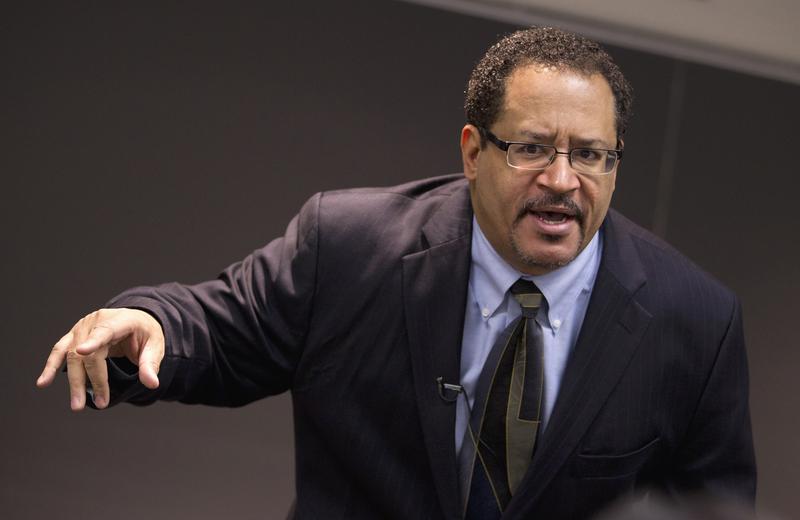
Former New York Senator and U.S. Attorney General Robert F. Kennedy is often remembered as a progressive hero and a civil rights icon. But in reality, his legacy with racial politics was a complicated one.
In his new book, "What Truth Sounds Like: RFK, James Baldwin, and Our Unfinished Conversation About Race in America," Georgetown University professor and author Michael Eric Dyson unpacks a 1963 meeting between Kennedy, Baldwin, and a group of leading artists and activists from the black community. As Dyson told All Things Considered host Jami Floyd, Kennedy went into the meeting wanting to know why black people were gravitating towards rage instead of the nonviolence being preached by Martin Luther King, Jr. —but he wasn't prepared for the answers he got.
"For three hours [Kennedy] was forced to sit there and hear the unglossed ferocity that black people brought to bear. And at the end of that meeting he was very upset, but then he calmed down and he said 'if I were black, I'd be full of rage too. Lets do what they want us to do: speak of race not just in political terms only, but in terms of morality as well,'" said Dyson.
According to Dyson, that moment of listening to hard, unvarnished truth helped Kennedy eventually become one of the strongest advocates for civil rights in America, and one of the most trusted white people in the black community. But that, Dyson says, that lesson is one that needs to be learned by other politicians living in the age of President Donald Trump.
"We should be enraged at a president who says there's no difference between people who fight bigotry, anti-semitism, fascism, and those who support it and advocate for it. His inability to have moral distinctions— we ought to be outraged by that," Dyson said.
For the full conversation, press the play button above.
